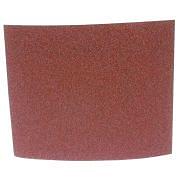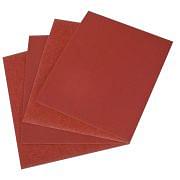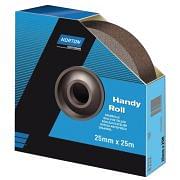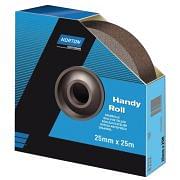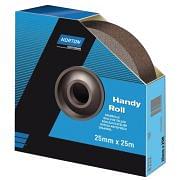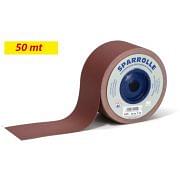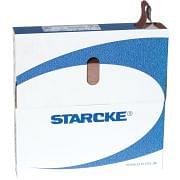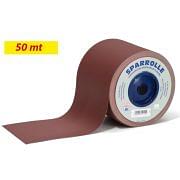Abrasive cloth in rolls, sheets and bands
Abrasive cloths in rolls, sheets and belts are an essential tool in machine shops for machining and finishing metals and other materials. Used extensively for sanding, grinding and polishing operations, these abrasive cloths come in different shapes and sizes, offering a versatile solution for a wide range of industrial applications.
The abrasive cloths consist of a textile backing onto which the abrasive grains are bonded. This type of structure gives the product superior strength and flexibility, allowing it to easily adapt to the surfaces to be treated. The abrasive grains can be of different materials, including aluminium oxide, silicon carbide and zirconia, each with specific cutting and durability properties.
Advantages of Abrasive Cloths in Rolls, Sheets and Tapes
- Versatility: Abrasive cloths are available in various formats, including rolls, sheets and tapes, allowing you to choose the product that best suits your needs. Rolls can be cut to size, sheets are ready to use and belts are ideal for belt sanders.
- Efficiency: Due to their structure, sanding belts offer a high material removal capacity, reducing processing time and improving productivity.
- Durability: High-quality abrasive materials guarantee a long product life, even under intensive use. This results in fewer replacements and savings in operating costs.
- Flexibility: The possibility of using different abrasive grits allows for different finishes, from aggressive roughing to fine polishing. In addition, the flexibility of the cloth allows even irregular or precisely shaped surfaces to be worked.
In machine shops, abrasive cloths in rolls, sheets and belts are used in a variety of processes, including:
- Surface preparation: Before painting or coating, metal surfaces must be sanded to remove imperfections and create an optimal base for adhesion of coatings.
- Finishing machined parts: After machining on a lathe or milling machine, components may require finishing to achieve a smooth, burr-free surface.
- Rust removal: Abrasive cloths are effective in removing oxidation and rust, restoring metal surfaces without damaging them.
Abrasive cloths in rolls, sheets and belts are an essential item for machine shops that need reliable and high-performance tools for metalworking. Their versatility, efficiency and durability make them an indispensable investment to guarantee high quality results at every stage of the production process.

